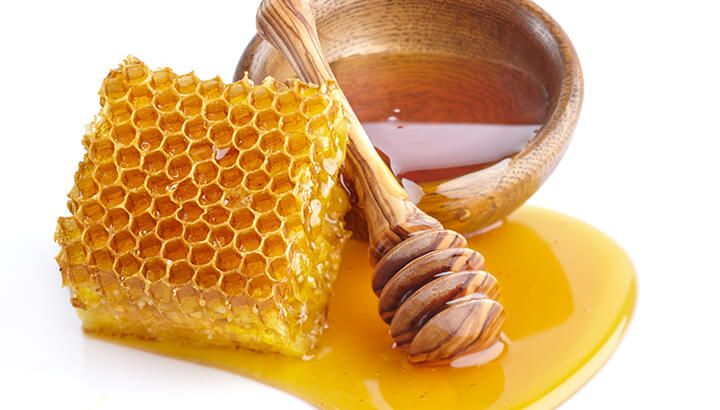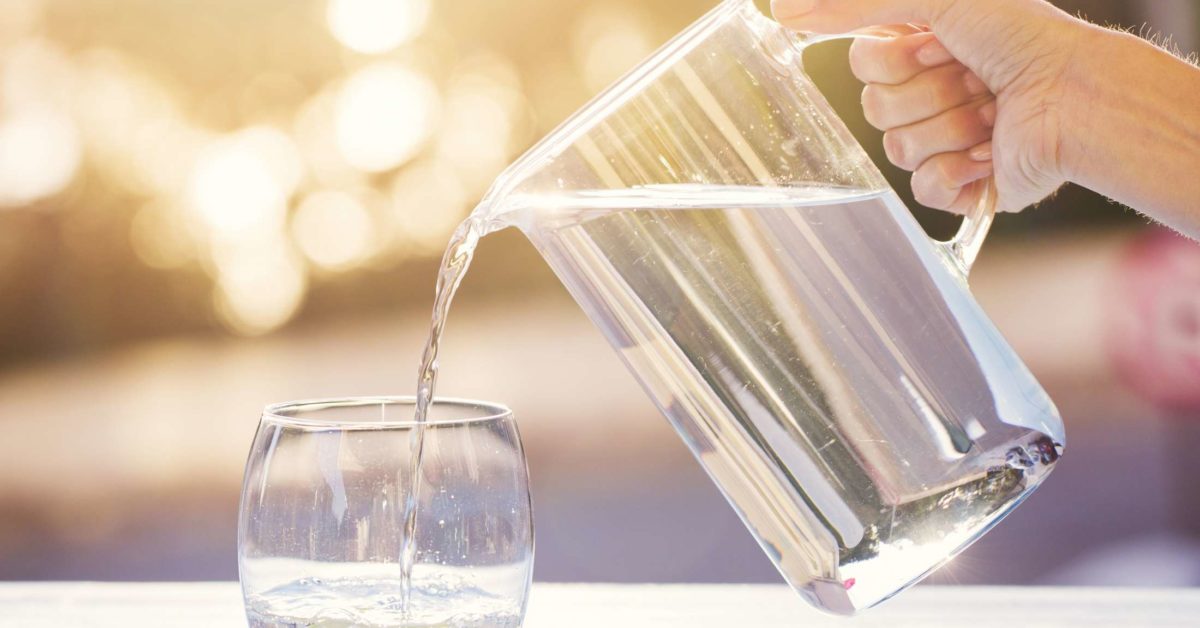We hear a lot these days about how to boost your immune system. Some of it is utter flim-flam and should be flung from you like a chakra-balancing jade egg.
Some of it, not so much. But before we go much further, it’s important to recognize the immune system as the two things it fundamentally is.
Firstly, it is a system, not a single process. That means it’s the work of several elements of your body, in combination. Any one of those elements may have performance levels that are flagging, and therefore there are a range of different things that can boost parts of your immune system, and so boost the overall performance of the system as a whole.
Secondly, as that description probably makes pretty clear, the immune system is complex. Any system that involves the work of multiple parts is complex. And just as you can boost various parts of the system, or maintain them in peak condition, so in a complex system, there are lots of parts that can fall below that peak level.
All that means is, to keep your immune system working well, you’re not looking at a one-strand approach, but a whole lifestyle tweak affecting several areas of behavior. It also means that you’re not necessarily looking to boost or strengthen the immune system per se, so much as you’re aiming to balance its elements. The closer to perfect balance you can get, the more effective your immune system will be.
What Do We Mean by the Immune System?
- The Innate Immune System
- Professional Phagocytes
- Unprofessional Phagocytes
- The Acquired Immune System
- Antibodies
- Antibiotics & Immunizations
The Innate Immune System
The Innate Immune System, as the name suggests, is something most of us are born with. It’s a simple hunter-killer system – phagocytes are a group of white blood cells that essentially “eat” potentially harmful microbes in the body, taking them out of the system so they can’t reduce the body’s efficiency. Think miniature biological Pac-Man, chasing bacterial ghosts around your system and destroying them.
Phagocytes come in professional and unprofessional varieties – the difference being that professional phagocytes have receptor cells that can detect harmful bacteria in advance of coming into contact with them. The Innate Immune System also has the characteristics of a team of firefighters. Whenever there’s an incident that needs their attention, they’ll be there, responding rapidly to whatever the threat may be.
The Acquired Immune System
The Acquired Immune System is the kind of immunity we acquire as we go through life. It tends to be the immunity you get by having some condition, or by being immunized against a condition.
Get a malaria shot before going to hot countries – what you get is a weak form of malaria, which encourages your body’s immune system to learn how to get rid of malaria, so when it encounters it at its fuller strength, it’s already learned the basics. Get a flu shot – same deal. Have chickenpox – you’re less likely to get it again because your body has learned what chickenpox involves, and gained a strength power-up to repel it next time.
This kind of immunity is down to the creation of antibodies that deal with specific threats. That’s why, for instance, you can get a malaria shot and still come down with chickenpox.
Antibiotics work as part of the Acquired Immune System too, often stripping the cell walls of bacteria and stopping bacterial reproduction. But unlike naturally produced antibodies or artificially produced immunity through immunization, antibiotics a) are ineffective against viruses – which is why they do nothing against the misnamed “common cold,” and b) gradually lose their effectiveness the more often you use them.
Where Does the Immune System Live?

In a sense, the immune system lives nowhere in the body, or at least not in any one specific place. Elements of the immune system though can be found in several locations.
- Bone marrow: the spongy tissue that fills up bones. Beloved of gourmets, bone marrow is also a ‘blood factory’ in the body, including white blood cells which act as phagocytes.
- The Adenoids: A pair of glands at the back of the nasal passage. Sometimes, these have to be removed, usually in childhood, but if you have them, they act as part of the immune system.
- Lymph nodes: Small, bean-shaped organs which are easy to overlook and are distributed throughout the body.
- Lymphatic vessels: A network similar to the blood vessels, but carrying lymphocytes, connecting the lymph nodes, and feeding lymphocytes into the bloodstream.
- Peyer’s patches: Patches of lymphoid tissue, found in the small intestine.
- The Spleen: An organ situated in the abdominal cavity. Once thought to be responsible for rage and bitterness, the spleen – being lymphoid – is part of the lymphatic system.
- Thymus: A couple of lobes behind the breastbone, in front of the trachea.
- Tonsils: Two masses of tissue at the back of the throat. Another element of the system that is frequently removed in childhood if they become inflamed or infected.
So – a complex system, then, with many parts located in many places. Is it even possible to bolster such a nebulous system by any outside actions?
Yes, it is, but as we mentioned, it’s a mistake to think of the immune system as a quick-fix, easy-boost, the more the better type of thing. You’re ultimately going to want to keep lots of different elements in balance – which isa much harder solution than you may be used to.
So what are we talking about, in terms of keeping your immune system in balance?
Things to Do to Bolster and Balance Your Immune System
Exercise: Exercise does more than help you manage your bodyweight/muscle balance. It can tone up the performance of most of your body’s systems, including the immune system.
Maintain a healthy weight/height/bone density ratio: There’s more to this than the ever-present cry of “Lose weight!” As with exercise, you’re looking for balance, not obsession.
Avoid harmful habits, from illegal substances to cigarettes: Your immune system deals with things that could be harmful to you. The less harmful material you actively put into your body, the less strain you put on your immune system.
Eat immunity-boosting foods: Yes, really, some foods give your immune system a boost. Don’t go crazy, but include them in your diet as much as you like.
Get good sleep: Sleep is probably the closest thing your body has to a magical ER. Get enough good quality sleep and you’re practically a different person.
Manage your intake of popular stimulants, like alcohol, caffeine, and sugar: As with getting enough sleep, if you can cut these popular stimulants out of your system completely, you’ll feel a beneficial impact. If you can’t, managing your intake will help your immune system focus on invasion threats.
Hydrate: Getting enough water is up there with getting enough sleep in the beneficial effect it can have on all your systems, including your balanced immune system.
Manage your stress levels: Whatever you do to relieve stress, don’t skip it. Stress puts your whole body under prolonged strain, and no system works at its best in those conditions.
Maintain good personal hygiene: Not merely a note of prudery. Bacteria can bloom on unwashed bodies, and be breathed in, giving your immune system unnecessary work to do.
Boosting Your Immune System Through Changes

The Benefits of Regular Exercise
People generally react in one of two ways to exercise. Either they feel invigorated, healthy, and bursting with new energy and pep… or they pant and gasp and want to slap those energetic people. The struggle is real for those not used to adding exercise into their daily or weekly routine.
The good news is that the more you do it, the less you pant and gasp, and the more you feel invigorated. Not only does exercise get easier the more of it you do, butexercise probably improves the functioning of your immune system. That’s a caveat you might not think necessary, but what you’ll find with the immune system is that its complexity, and the fact that parts of it are located in different areas of the body, means it’s difficult to 100% point at one thing or type of activity and say “This definitely improves immune functioning by this much, and here’s why.” The whole thing is more nebulous than that, but there are plenty of popular theories of how exercise could help bolster immunity.
- It’s possible that cardiovascular exercise helps flush bacteria out of the lungs, nasal passages, and airways. This may result in a reduced likelihood of getting colds and infections due to fewer bacteria for the immunity system to have to deal with. It should also be noted that heavier breathing during exercise increases the likelihood of taking in new bacteria from the environment at the same time.
- Exercise may well speed up the production of white blood cells (phagocytes), giving you more warriors in the fight against bacteria and other harmful invaders.
- Getting hot and sweaty may help boost the immune system in two ways. Firstly, it might inhibit bacterial growth in the body. And secondly, if your temperature rises, your body might be more efficient at fighting infection. That, after all, is how a fever works.
None of these are technically proven as of yet, but the overall health benefits of exercise have been more successfully nailed down. It may simply be the case that a healthier body, closer to the point of balance, is more able to fight infections than a body where systems are out of peak condition. Certainly, those theories could well be accurate though – but as we said, proving direct cause and effect in a system so diverse and biologically spread out is always going to be tricky.
So You Want to Get Active?

There are any number of ways to add a little exercise into your life, and from a little, to build it up to a healthy amount. We’d never advocate you take it to extremes – balance, remember, not obsession – but getting exercise is always likely to make you feel better and might boost your immune function, too.
Walking
All things being equal, this is one of the easiest, most frill-free ways to get exercise into your week. Start with shorter circuit-like walks around a couple of blocks or a regular road.
Whether you break your journey, aim for a specific destination – the grocery store, a favorite coffee shop, etc – or just walk for the sake of walking. Whether you use the time to connect to the sounds around you, get your stride on to some favorite music, or lose yourself in an audiobook while you walk. It’s totally up to you.
Studies have shown that people who walk at least 20 minutes a day, at least 5 days a week, had 43% fewer sick days than people who exercised less frequently. There are several potential explanations for this, but one of them is that the walkers’ immune systems are strengthened by regular walking.
As well as getting air in your lungs and action in your muscles, your daily walk can be total you-time, which can help reduce your stress or can be time to catch up with friends in the three-dimensional world – something we’re learning to appreciate again after Covid restrictions.
Running
Like walking, but hotter. Make sure you get a good pair of running shoes, and again, build up gradually so as not to overdo it or dissuade yourself. Running will give you much more cardiovascular return for your energy investment than walking will, meaning you stand a much better chance of activating those immune-boosting elements like a raised temperature and bacterial expulsion.
There’s also support for the idea that running for even as much as 15 minutes can radically increase the number of your white blood cellsand disperse them around your body looking for bacteria or other invaders to devour.
Ideally, get fresh air when you run – outside, rather than trapped on a treadmill, for an extra mood boost. That said, indoor running gives you precision control over the slope, speed, and mileage you run, which is beneficial when trying to boost your overall fitness.
Cycling
Like running, only with extra balance. Cycling provides the same sort of white blood cell boosting benefits as running, but you can go further and explore more, for a longer heat burn to interrupt bacterial growth.
As with many cardiovascular exercises, it helps boost lung function, which could help bacterial expulsion, but also helps regulate weight and can burn through the stresses of day-to-day life and leave you more inclined to better, longer, more restful sleep. As with any exercise, remember to hydrate along the way, or you risk throwing your hydration levels out of whack. Remember – balance is the key, not over-exertion.
Swimming
Standard swimming may not carry the same sudden internal temperature rise as running or cycling, but it does help release endorphins, which naturally elevate your mood, relieve stress, and promote good, healthy sleep – all of which play into the overall balancing of your immune system.
Cold water swimming though helps get your immunity-boosting game on. The sudden change of state that cold water brings helps stimulate white blood cell production. t’s like an alarm clock to your system and the white blood cell-producing regions of your body get shocked into action. So if you don’t feel like cycling 20 miles, find a cold body of water and have a good, safe swim.
Maintain a Healthy Weight

Maintaining a healthy weight sounds like a plan. If everything involved with a healthy immune system depends on balance, then tipping the scales at a healthy level, neither too light nor too heavy, has to be good, right?
Right – as we said earlier, the closer you can get to balance in all areas of life, the more effective your immune system is likely to be (all other things, like immunocompromising conditions, being equal).
Great – so what’s your healthy weight?
Ah.
That’s where things get a liiiiittle more complicated.
The standard tool for calculating your ideal or healthy weight range, generally used by good doctors, trained dieticians, and sadly, fad diet peddlers alike, is the BMI or Body Mass Index.
The what-now?
Your BMI is an equation that is growing more and more sophisticated as diagnostic data becomes available, but at the moment is still relatively basic. There’s a curve that will take in your age, height, weight, sex, and self-described lifestyle. Then it will crunch those numbers together and give you two numbers representing your healthy weight range. If all the factors you’ve put in are accurate, the BMI calculation gives you an idea of what you should be aiming for. This is the range that your weight should be to hit that sweet spot of peak bodily performance – including peak performance of your immune system.
But, it’s by no means that simple.
What your BMI doesn’t take into account are things like muscle mass, bone density, overall body composition, fat distribution, racial and more complex sex differences, and the actions of any conditions like hyperthyroidism and hypothyroidism. In essence, a BMI is like an X-ray of you. It can tell you some basic things, but it’s nowhere near the complete picture.
OK, so what should you use instead to find your healthy weight?
We’re not saying you should throw BMI in the garbage – it does give a useful combination of factors their place. But in addition, there are rather easier methods to fall back on, like the common tape measure.
That can give you a waist circumference measurement, and while it’s even more in the realms of inexactitude than BMI, doctors generally use a measurement of 35 inches and under as a safe zone for women when it comes to the likes of heart disease, and 45 inches and under for men.
While you have your tape measure out, check your waist-to-hip ratio. Measure both parts, compare the two. Plug the numbers into a handy online calculator and you’ll get an idea of how your weight distribution might be contributing to health issues, including a flagging immune system.
Then there’s the Body Adiposity Index. Using fewer criteria than the BMI, it as yet lacks any scholarly backing, and there’s some indication that it’s less useful than BMI in older people, but there’s a growing body of opinion that it could be more immediately accurate and useful to most people trying to manage their weight. Simply multiply your hip circumference by your height to get your Body Adiposity Index figure.
Whichever figure you go with, it’s wise to talk to your doctor before beginning any big body-changing regime – whether you’re bulking up from underweight or slimming down from over. They can help you take the necessary steps to achieve and maintain your healthy weight – without compromising other elements of your immune system’s balance.
No Smoking

You don’t need us to tell you that the effects of harder, habit-forming but less socially acceptable drugs will unbalance your immune system. More or less all popular media portrayals of harder drugs make that abundantly clear.
Smoking is going the same way as the harder drugs, and for good reasons. The combination of tar, nicotine, and some pretty hardcore carcinogens among the 7,000 chemical compounds in the average cigarette has been proven to increase the risks of certain cancers for years.
Smoking also disrupts the equilibrium of the immune system, according to the Center for Disease Control. Smoking actively reduces the immune system’s ability to fight infection. More than that, it increases your likelihood of developing several immune and autoimmune disorders, including rheumatoid arthritis.
Fortunately, the body has a remarkable capacity to self-repair. Quitting smoking starts to have a beneficial effect on many systems in the body almost immediately, and in terms of the immune system, the eventual absence of those 7,000 compounds will reawaken the immune system at its previous level of activity.
Eat Your Way to Immunity

In the same way that adding the chemicals in a cigarette into your body can suppress the actions of the immune system, so taking in immunity-boosting foods and ingredients can help it to function at peak efficiency.
What foods are good for my immune system?
Mostly, you’re looking to increase your intake of certain fruits and vegetables, though because nature never likes a hard and fast rule, chicken sneaks into this list too – probably hiding behind a giant head of broccoli. Let’s take a quick look at what’s what on your immunity-boosting grocery list.
Mostly-Vegetables That Will Boost Your Immune System – And How They Do It
Red bell peppers: One of nature’s biggest stores of Vitamin C (three times as much as a Florida orange), which is believed to promote the creation of white blood cells to fight invasion and infection. Also a source of beta carotene, which can maintain skin and eye health.
Broccoli: Full of Vitamins A, C, and E, along with fiber and antioxidants, broccoli is packed with elements to improve your immunity balance. The only catch is that the closer to raw it is, the more immunity-boosting nutrients reach your system. Anyone up for raw broccoli?
Garlic: Almost every great civilization in the world has recognized the power of garlic to boost their immune systems. Probably getting its power from a concentration of sulfuric compounds like allicin, garlic can also slow the hardening of your arteries.
Ginger: Like garlic, ginger is another natural powder-keg of health-boosting compounds. While not boosting blood cells as such, it does help reduce systemic inflammation, which means it helps the immune system get the job done.
Spinach: Remember red bell pepper? Meet their nutritional cousin, spinach. Vitamin C and beta carotene combine with antioxidants to make another immunity booster. As with broccoli, best eaten raw, but if you wilt it gently, you’ll keep most of its nutrients, while also making it easier to absorb the Vitamin A it contains.
Yogurt: Live, active cultures is the whole game here. You’re looking for plain yogurts, not fruity, sugar-crammed variants. Greek yogurt in particular is useful. It also has a healthy dose of Vitamin D.
Almonds: Almonds are delicious additions to lots of dishes, and they’re bombs full of Vitamin E (great for immunity-balancing) and nut-flavored fat. A little goes a long way here – half a cupful and you’re good for Vitamin E for the day.
Sunflower seeds: Another Vitamin E-bomb, but also bringing phosphorus, magnesium, and Vitamin B-6 to the party. More than anything, just 2 ounces of sunflower seeds will give you most of the selenium you need each day.
Turmeric: A yellow, bitter spice at the heart of many curries, turmeric contains high quantities of curcumin – which works as an immunity booster and an antiviral. What’s at least as cool, turmeric is a known anti-inflammatory, used in treatments for osteoarthritis and rheumatoid arthritis.
The surreptitious chicken: You know the legend of chicken soup curing all ills? Mmm pretty much. Mostly, chicken is a Vitamin B-6-rich flavor bomb. Vitamin B-6 loves making new red blood cells to keep your body healthy. Make a soup of chicken and you also get gelatin, chondroitin, and other immunity must-haves.
Green tea: While both black and green teas are packed with antioxidants, the green version brings epigallocatechin gallate (EGCG) to your immunity-bolstering game. It’s an antioxidant that especially boosts your immune system performance. And the kicker? Black tea is fermented, which kills a lot of the EGCG. Green tea? No such process, no such problem. Green tea also delivers some L-theanine (an amino acid that may boost white blood cell production in T cells).
Immunity-boosting fruits
It’s worth considering fruits as a special category of ingredient, if only because they’re more usually eaten in isolation – you might eat a clementine for fun. Nibbling on a garlic clove between meals? Less likely. So which fruits are better for your immune system?
Fruits That Will Boost Your Immune System – And How They Do It
Kiwi: The headline is probably the Vitamin C content of the kiwi fruit, which helps create white blood cells, but it’s also bringing Vitamin K (excellent for blood clotting and bone-building), folate, and potassium to your day.
Orange: Most of the citrus fruits are all about delivering Vitamin C, with its white blood cell stimulating effect. Oranges also deliver thiamine, folate, and antioxidants to your system.
Lemon: As with oranges, the Vitamin C content of a lemon is its main headline, but it’s also rich in Vitamin B-6 and potassium.
Clementine: Vitamin C (roughly 40% of your daily need per clementine!), plus thiamine, folate, and fiber make up an average clementine. They’re also filled with water for a refreshing hydration boost.
Grapefruit: A heavy-hitting citrus fruit, grapefruit gives you Vitamins A and C, along with thiamine, folate, potassium, and magnesium as part of its natural immunity-boosting chemical cocktail.
Tangerine: Another grenade of Vitamin C, an average tangerine will give you 34% of your daily dosage.
Lime: A medium lime will get you 22% of your daily Vitamin C fix, but also comes with iron, calcium, potassium, thiamine, and Vitamin B-6 underneath its peel.
All these foods, rich in vitamins and other balancing chemicals, can help you work towards a more stable immune system. The point of them though is not to overdose on limes one day and broccoli the next. Just include more of these ingredients into your regular diet, and what you’ll get is a general tweaking effect, rather than a dramatic one. Eat more immunity-boosting ingredients and you’ll edge your way to chemical equilibrium.
Limit Sugar Intake

Here’s the deal with sugar. It tastes ridiculously good and can create a need for more – which is why sugars of various kinds are added to lots of foods in the American pantry. But when you take in a big hit of sugar – a cupcake or can of soda, say, the sugar damps down your white blood cells’ ability to function.
The effect also lasts several hours at a time, so if you have, for instance, sugary cereal for breakfast, a donut for lunch, and maybe a cheeky cupcake after dinner, you’ve essentially pummelled any efficiency out of your immune system for the day.
Nobody’s out to steal away your sweet treats, but you’d have to eat a lot of raw broccoli to offset the effect on your white blood cells of too much sugar in the day.
So, ask yourself – is it worth it?
Hydration is Key

Water makes up 60% of the human body.
In particular, our immune system functions by making use of nutrients in our bloodstream. Take a wild guess what most of our bloodstream is made of?
Yep. Water. If you don’t take in enough water, getting nutrients from A-B is a more sluggish process with more difficulty in take-up. Also, without enough water, our muscles ache, we get headaches, our digestive system throws a gear, and it becomes harder all-around to flush bacteria and other invading molecules out of our system.
Drink. More. Water.
How much more?
How many pounds do you weigh?
Halve that number and turn it into ounces.
Every day.
Water intake doesn’t all have to be plain water – the green tea that boosts your immune system can count towards your daily water intake too. But essentially, we are skin-sacs full of water, and we need water for every single element of our bodies to work at their peak efficiency. That includes our immune system – so drink up!
Drink up and the headaches will fade away. The muscle tension will ease. You’ll feel healthier, and your skin will feel softer and more pliable. Your organs will function more efficiently, and your bloodstream will help your immunity system drain away impurities, get the right nutrients to where they’re needed, and turn you into the human being you should be.
Get Good Sleep

It’s almost impossible to overstate the importance of sleep. Studies have shown that people who either don’t get enough sleep or the right quality of sleep are more likely to get sick, and will recover more slowly when they do.
Why is that? When you sleep, your immune system releases proteins called cytokines. When you get an infection or an inflammation, your body needs more cytokines to deal with them. Less sleep, or less quality sleep, means fewer cytokines. That in turn means a less effective immune system.
When you don’t get enough sleep, you also don’t produce as many antibodies, so it’s like you’re tying one hand of your immune system behind its metaphorical back.
So much for immunity. For those determined to play the long game, long-term lack of sleep also raises your risk of obesity, diabetes, and heart disease. You wouldn’t think it does – but it does.
So, how long are we talking about? Most adults need 7-8 hours of sleep per night. But as with everything else connected to the immune system, balance is key. Sleep for more than 9-10 hours per night and the quality of your sleep starts to drop off. Moderation and balance are your immune system’s watch-words.
Manage Your Stress Level

Stress puts your whole body – not to mention your mind – in a constant state of tension. It affects every system in your body. In particular, the American Psychological Association says stress weakens your immune system.
Between 1982-92, psychologist Janice Kiecolt-Glaser, Ph.D., and immunologist Ronald Glaser, Ph.D., of the Ohio State University College of Medicine performed experiments on medical students. Over a three-day exam period, the students’ stress spiked, and Kiecolt-Glaser and Glaser discovered those students had fewer natural killer cells, produced less gamma interferon (which typically boosts immunity), and had weaker infection-fighting T-cells.
Removing stress from your system is huge when it comes to bolstering your immune system.
While the likes of yoga, Tai Chi, and meditation are among the most excellent stress-flushers, because they combine mindfulness, routine, breathing exercises, clear-headedness, and often ritualized movement which reduces stress to an external element, they’re by no means the only options.
Whatever keys into your particular release triggers can act as an effective stress-flusher. Walking in nature, talking with friends, dancing madly around your kitchen, defeating the level boss on your new console game, browsing with all the time in the world around your favorite bookstore, or sitting quietly in your garden. Whatever it is that takes you out of the pulse of the day and its ever-reloading list of stress points, it can be your way of getting rid of the accumulated stress.
It might be a good idea to give yoga or meditation a try though, because they formalize the idea of relaxation and de-stressing, making it something proactive, rather than something reactive. Recent research has shown that yoga in particular has a positive effect on the immune system through its stress-reducing properties.
Maintain Good Personal Hygiene

As we mentioned earlier, this is not prudery, just practicality. The human body is an animal thing. It has colonies of bacteria, plants, and animals living on it, thankfully too small for the naked eye to see. Also, if Covid-19 has taught us anything, it’s that we pick up and transmit particles, bacteria, and even viruses every day, simply by being alive and moving about.
Without proper hygiene, all of this stays with us.
And multiplies.
The chance of bacterial or viral infection grows at a frighteningly exponential rate the poorer our personal hygiene is.
So to keep your immune system functioning properly, and to stop it from being overwhelmed, regular washing of your hands, faces, creases, and entry-points is vital. So too is a degree of etiquette – if you’re going to sneeze or cough, ideally cover your face in a handkerchief or limit the distance of your expulsion zone. Cough into an arm, for instance, or sneeze in a direction away from anyone else.
By practicing good personal hygiene – and good personal manners – you can limit both the likelihood of your immunity system being overwhelmed and the chance of passing on bacteria or viruses to anyone else.
Culled from https://www.buzzrx.com/








